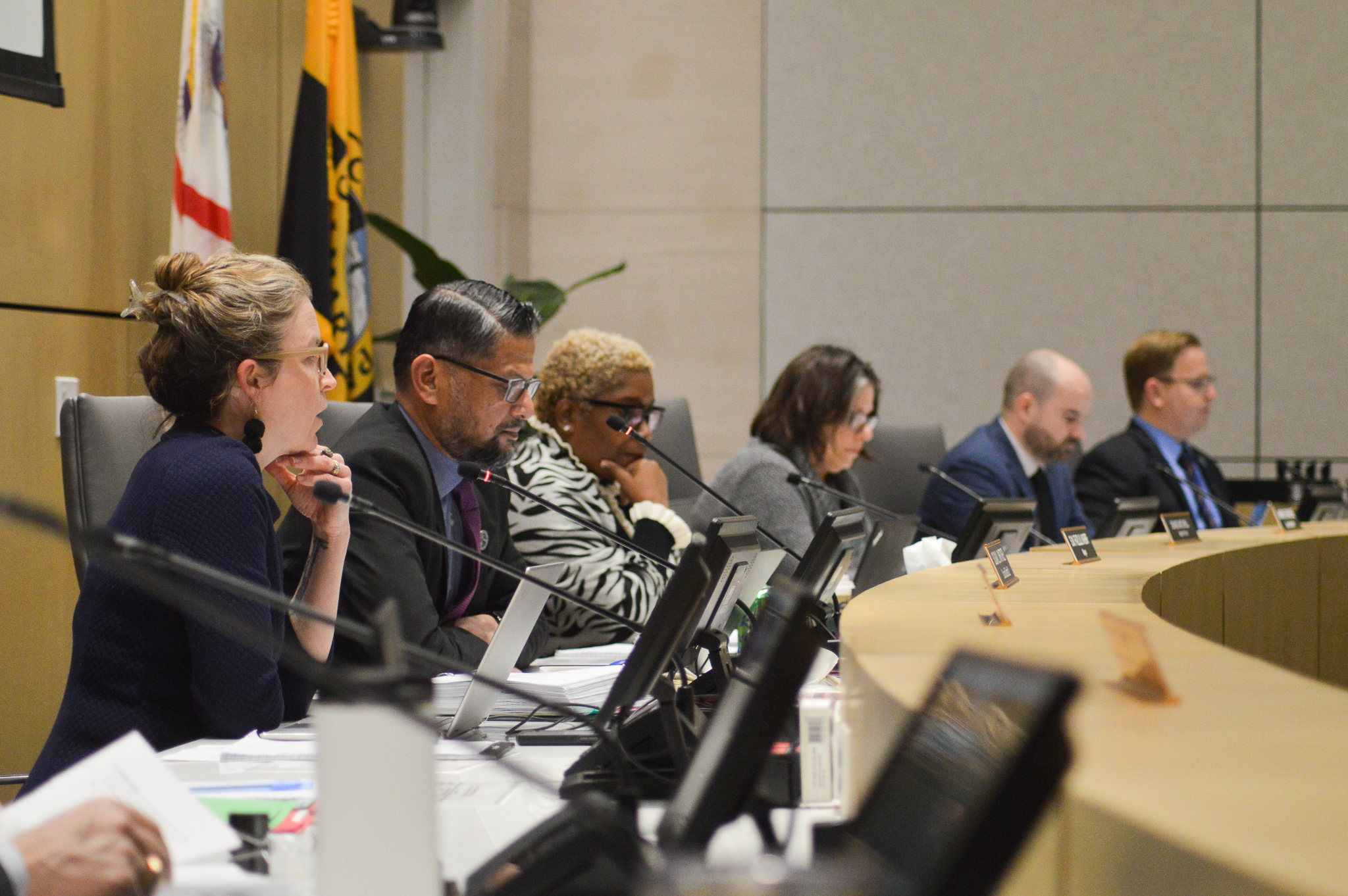The College Park Restorative Justice Commission gave its annual update to the College Park City Council Tuesday where they called on the city to support renaming local sites and presented the Lakeland Legacy Scholarship Program.
The commission — which has 20 members including residents displaced from Lakeland and their descendents — was established in 2022 with the goal of reckoning with the city’s history and restoring the Lakeland neighborhood.
Lakeland, a historically Black community in College Park, was subjected to urban renewal from the 1960s to the 1980s, which led to the destruction and displacement of 104 out of the community’s 150 households.
According to College Park racial equity officer Kayla Carter, the commission hopes to see the mayor and council support their request to rename the Maryland National Capital Park and Planning Commission College Park Community Center to the Lakeland College Park Community Center.
The request aims to honor Lakeland’s historical significance and cultural heritage, Carter said.
“Renaming this community center will not only preserve this legacy but also educate future generations about the important role that this area has played in shaping the city,” Carter said.
[College Park City Council considers loosening eligibility for rent subsidy program]
The commission also requested the Lake Artemesia Natural Area — another M-NCPPC site — be renamed to the Lake Artemesia Natural Area at Lakeland.
“This is a historic part of College Park and has been significantly affected by various urban renewal initiatives over the years,” Carter said. “Renaming Lake Artemisia to include ‘at Lakeland’ will serve as a meaningful gesture to acknowledge the enduring spirit and resilience of Lakelanders.”
The commission also floated renaming other sites, such as Paint Branch Elementary School, to the city council.
The commission and wider community are still trying to agree on future actions, according to Maxine Gross, the Lakeland Community Heritage Project’s president.
“Where we are right now is still largely around the education, coming together kind of phase of the process,” Gross said. “[This] conversation will come back again around the school name.”
The commission also presented a plan for the Lakeland Legacy Scholarship Fund, which it hopes the city council will officially recognize.
The fund aims to provide scholarships to Lakelanders pursuing restorative, transformative and vocational education in addition to other academic scholarships for part and full-time undergraduate and graduate students. The academic scholarships currently amount to three $1,000 awards for undergraduate students and three $2,000 awards for graduate students.
To qualify for the scholarship, applicants need to have at least 10 years of documented residency in Lakeland or be the direct descendent of someone who has documentation. Lakelanders displaced by urban renewal and their direct descendants will receive first priority for the scholarship, according to city documents.
[Controversy over Hollywood farmers market decision sparks conversations on local markets]
“This program aims to strengthen the knowledge base of Lakelanders that was lost to displacement created by urban renewal,” Carter said.
The committee hopes to open the application this month and announce the first class of scholarship recipients by this May or June.
The commission also formally requested that the council participate in and endorse its upcoming efforts and events.
These events include four town halls happening across the next five months. In one of the town halls with a panel, the commission wants a council member to read the city resolution that established the Restorative Justice Commission.
“Our hope is that you would all together have one person read, but everyone stand, in order to present the resolution to the Lakeland Community,” Gross said.
District 3 council member John Rigg expressed appreciation for the work the committee has done and the attainable requests they put before council.
“It’s so nice to see real tangible recommendations and things that this council is eager to do,” Rigg said. “I certainly support it.”



